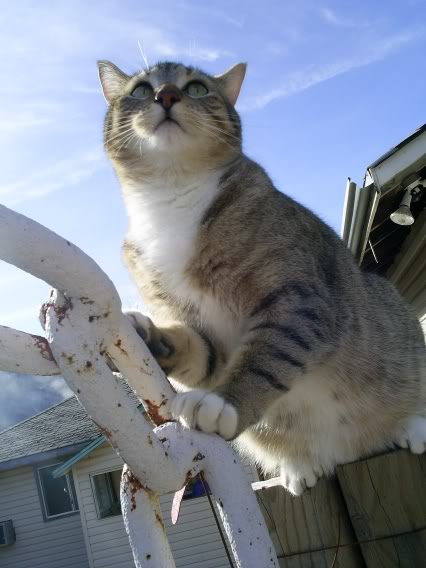The African Grey has been a popular pet for a long time. King Henry VIII shared his home with one back in the 16th century. Its popularity stems from its great intelligence, beautiful appearance, and its ability to speak.
Considering the following information as you make your choice will help you decide if this is the bird for you, and if so, will result in a happier relationship between you and your Grey.
Social Needs--This is a bird that needs a fair amount of social interaction to stay healthy emotionally and mentally. It should be placed in an active part of your home so that it can observe all that goes on.
It also needs to be allowed out of the cage for at least an hour each day and given one on one human interaction. Introducing a variety of people will keep them from being wary of strangers and will allow them to bond with those other than the main caregiver.
Toys and Housing--Because they are so intelligent, they need to be in a stimulating environment that includes a variety of toys that are rotated frequently, toys that they can tear apart without injury, and toys that contain food or treats that they must work to remove.
They need a large cage that is at least 4 feet long by 3 feet deep and 3 feet high with a solid back, or that is placed against a wall to provide a feeling of security. Perches should be placed at various levels around the room for their use when they are out of the cage. Allowing your parrot to spend time out of the cage insures a happier and healthier bird-both physically and mentally.
Growth and Development--Greys take a fairly long time to "grow up". They are not considered adults until they are about 10 years old. It is important that during these first 10 years obedience training is a regular part of your daily routine. This will help your Grey get along well with both humans and other pets when it reaches adulthood.
Food--Diet should consist of pellets, a minimum of seeds, and daily offerings of fresh fruits and vegetables (organic is best). Avoid chocolate, avocado, garlic and onions, rhubarb, caffeine, alcohol as they are toxic to your bird.
Birds are lactose intolerant, so since they are unable to digest dairy products they have no nutritional value and should be avoided. If you have questions about your Grey's diet, consult an avian veterinarian before giving any food that you are unsure about.
Maintenance--African Greys are considered a dusty bird because they produce a fine white powder that goes airborne when they shake or ruffle their feathers. This will require bathing your bird more often, and cleaning the cage more often that a less dusty bird. Using an air purifier near the cage will greatly eliminate this dust that can carry potentially life threatening bacteria and viruses for your parrot.

 Weekend Retreat Tips - 15 Common Vacation Disability Benefits You Can Remain!
Points of interest. russian trips are good methods for those
Weekend Retreat Tips - 15 Common Vacation Disability Benefits You Can Remain!
Points of interest. russian trips are good methods for those
 The Language Makes For An Great Vacation Hire?
1 more unique vacation home business that is to be had durin
The Language Makes For An Great Vacation Hire?
1 more unique vacation home business that is to be had durin
 Why Wetlands Are An Critical Aspect Of Eco
Pets are usual areas of peoples lives it isnt really at all
Why Wetlands Are An Critical Aspect Of Eco
Pets are usual areas of peoples lives it isnt really at all
 Notes For Your Vacation Rental Pet Policy
Sometimes the blues could very well set in and after a vac
Notes For Your Vacation Rental Pet Policy
Sometimes the blues could very well set in and after a vac